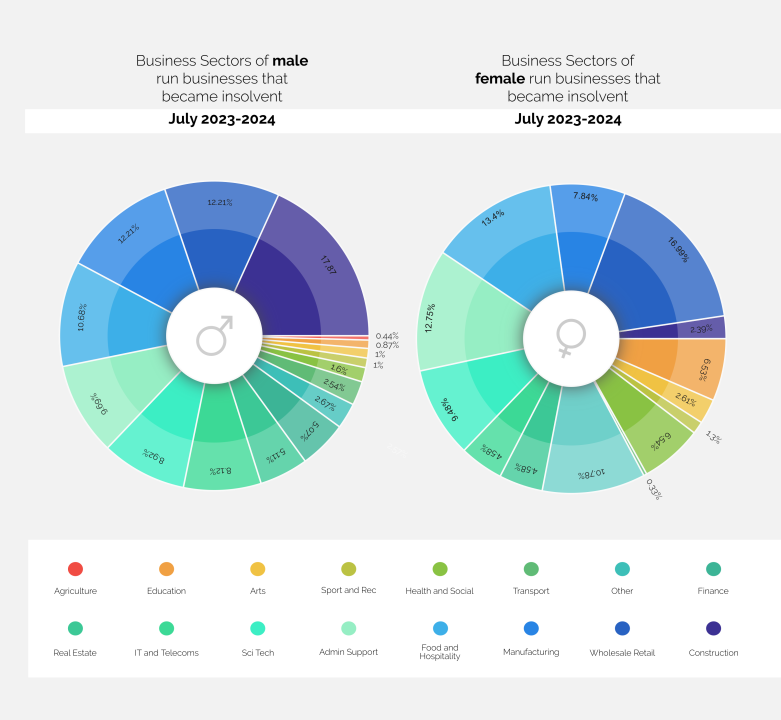
Women-run companies less likely to fail than male-led companies
KSA Group Limited, insolvency practitioners who run the Company Rescue website, has researched the UK SME market of over 4 million businesses in an attempt to see if there was a gender bias on the board of companies that become insolvent.
The study was designed to investigate if the insolvency rate was higher for male or female-run companies.
Companies were investigated to determine the gender of the board of companies that had either gone into administration or liquidation over the last twelve months, to see if there was any correlation between gender and the general financial health of a business.
Key findings
- Insolvency rate is 71% higher in male-run companies
- Nine times as many companies are run by men than women
- There is a small difference in the industry sectors of companies run by men or run by women. Construction businesses are more likely to be run by men and education businesses are more likely to be run by women
- It was found that the insolvency rate of male-dominated businesses was 0.7% and those in female-dominated businesses was 0.41%. So, the insolvency rate is 71% higher in male-run businesses
What conclusions can we draw from these findings?
Keith Steven, MD of Company Rescue said: “It is apparent that the insolvency rate is higher in male run businesses, but this may be due to a number of factors that have nothing to do with whether men are inherently worse at running businesses than women. It may well be that the businesses that tend to be more likely to become insolvent due to the nature of the industry or recent economic events are coincidently run by men.”
However, he went on to add: “This is now the third study that we have carried out since 2018 and the results are very similar. In 2018 the types of businesses run by women were different to the ones in 2024. In 2018 property businesses made up a higher proportion of women run businesses that went into insolvency whereas in 2024 it was Retail and Education. This might suggest that the business sector is not that relevant and so pointing to a higher financial competency, or less risk taking, by women directors.”
Women in the insolvency profession
On average, 15% of Licensed Insolvency Practitioners (IPs) are women – which does mirror the number of women run businesses. It reached this number by analysing a large sample of the register of insolvency practitioners listed on the GOV.UK website.
See the pie charts below which have categorised businesses into the established Standard Industry Classification.

Methodology
For the analysis Company Rescue researched Creditsafe’s database of 4 million companies in the UK.
In order to do the analysis, 4 data sets were collected:
- A count of all active companies with just two men on the board or a majority of 75% of the board that have been actively trading in the last 12 months > 707598
- A count of boards containing just two women or a majority of 75% of the board that have been actively trading in the last 12 months > 76715
- A count of all companies that went into administration or liquidation in male-run businesses as above > 5007
- A count of all companies that went into administration or liquidation in female-run businesses as above > 318
Single person directors were excluded as were businesses with less than a 75% gender bias. The thinking behind this was that single director companies are made up of a significant number of personal service companies that are not small businesses employing people, and needing complex financial controls, but rather a form of self-employment.
Final thoughts
Clearly more studies could be done in this area to see if there really are any gender influences in business failures. Given that many business failures are caused by not acting early enough and not taking advice, then the old cliché that men don’t follow instructions or ask for help in many aspects of their lives may just be true in their roles as Directors of companies.
For more startup news, check out the other articles on the website, and subscribe to the magazine for free. Listen to The Cereal Entrepreneur podcast for more interviews with entrepreneurs and big-hitters in the startup ecosystem.

